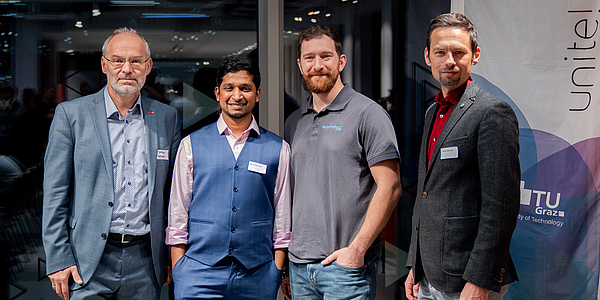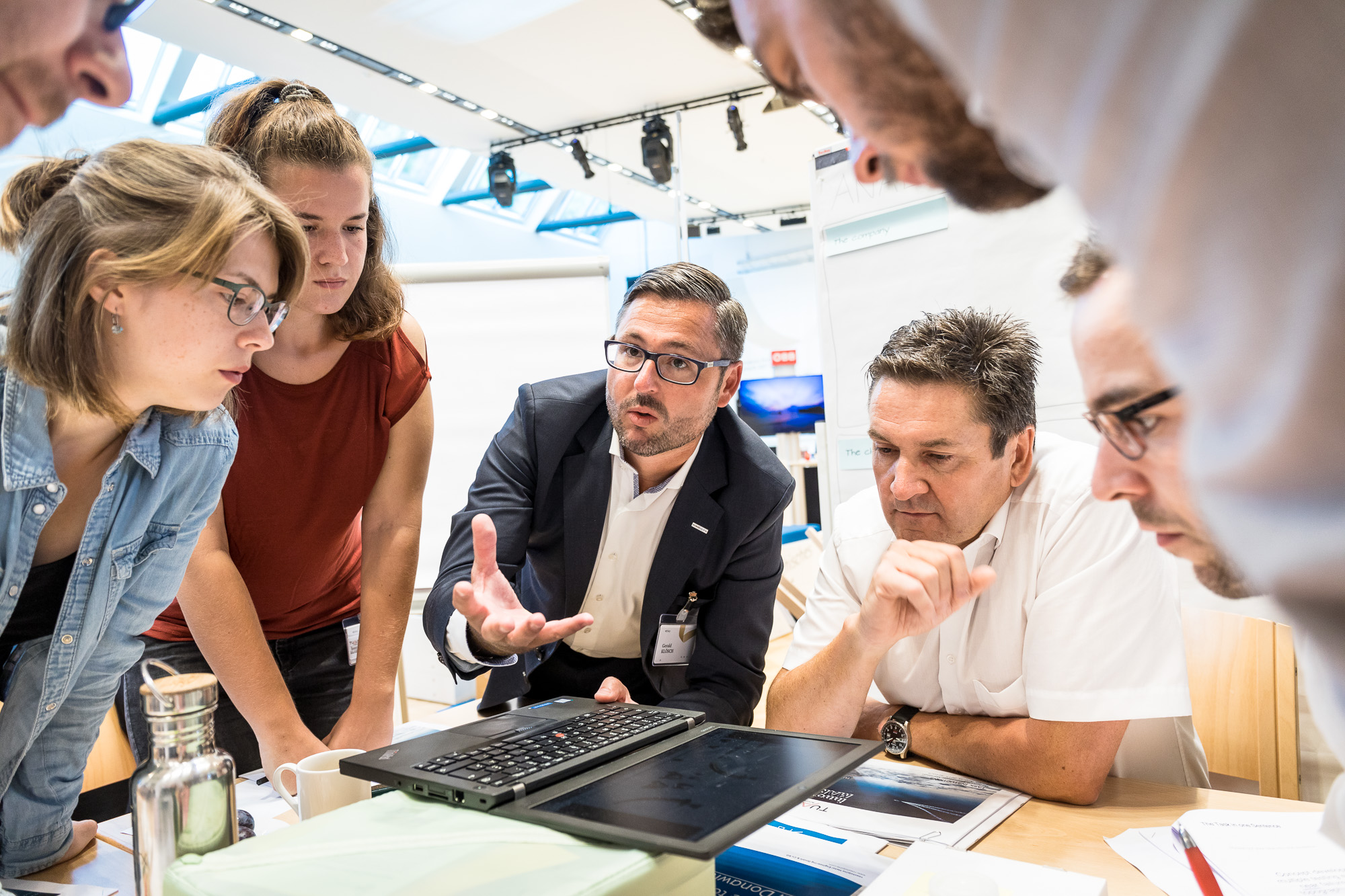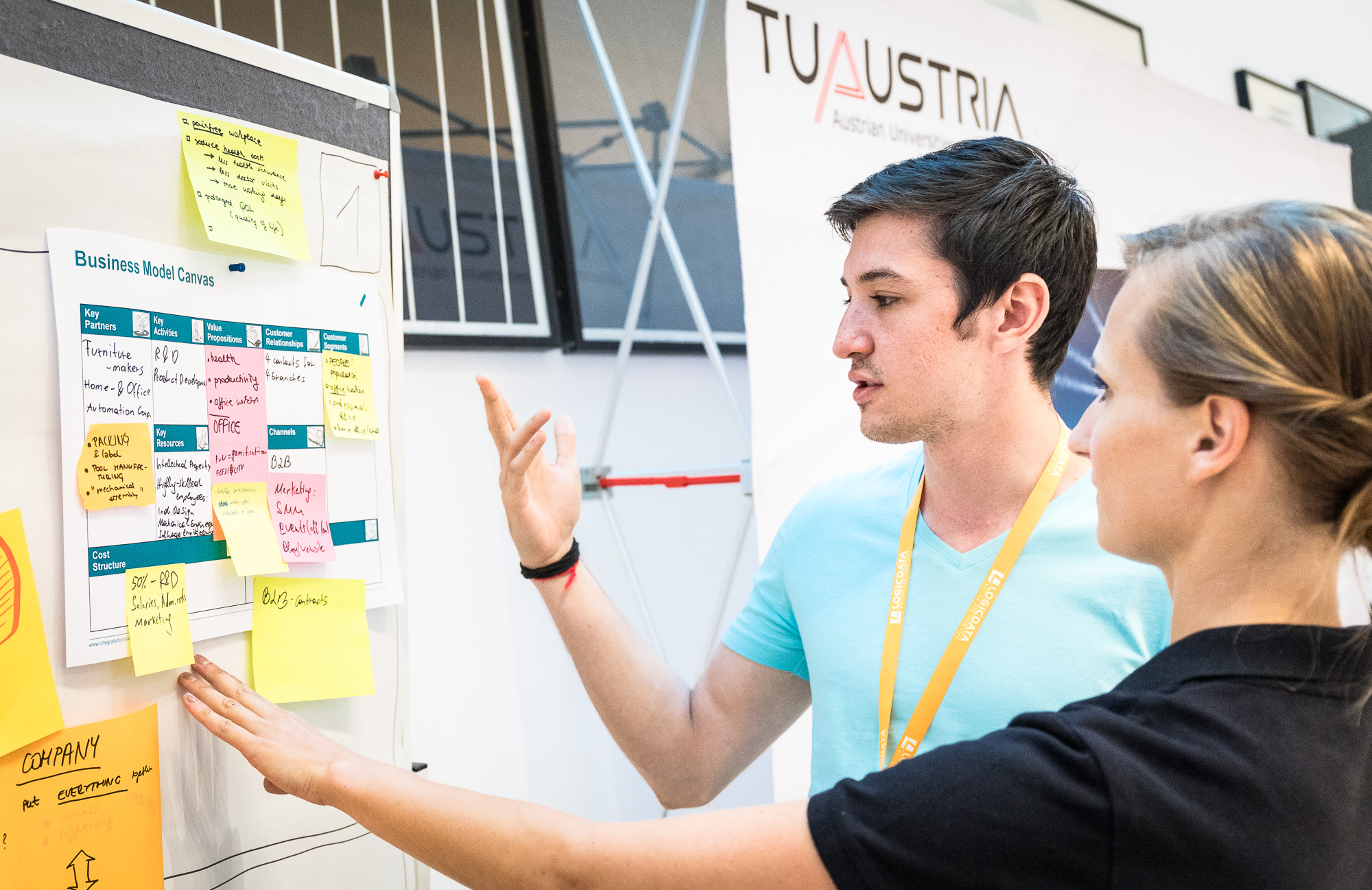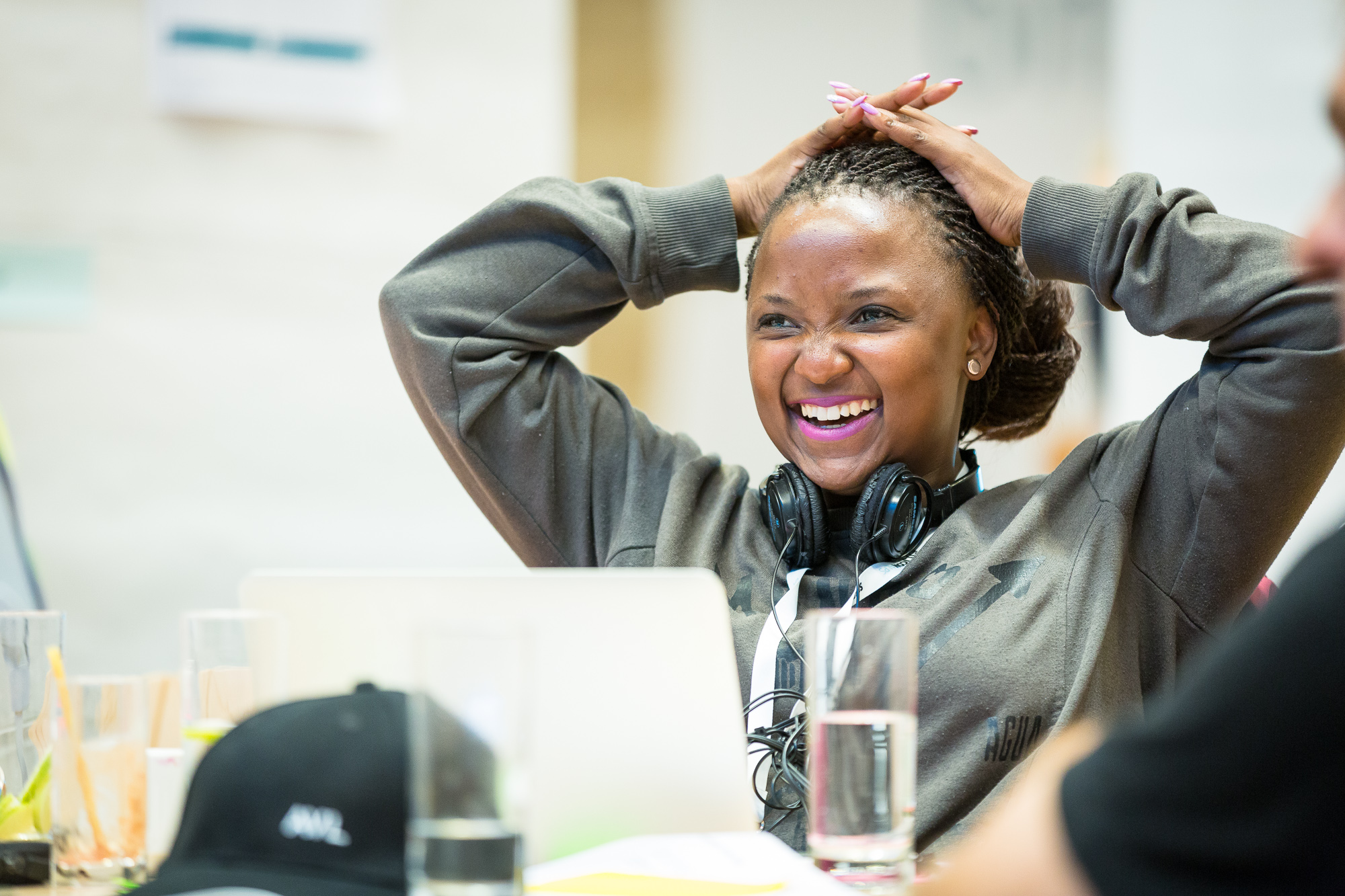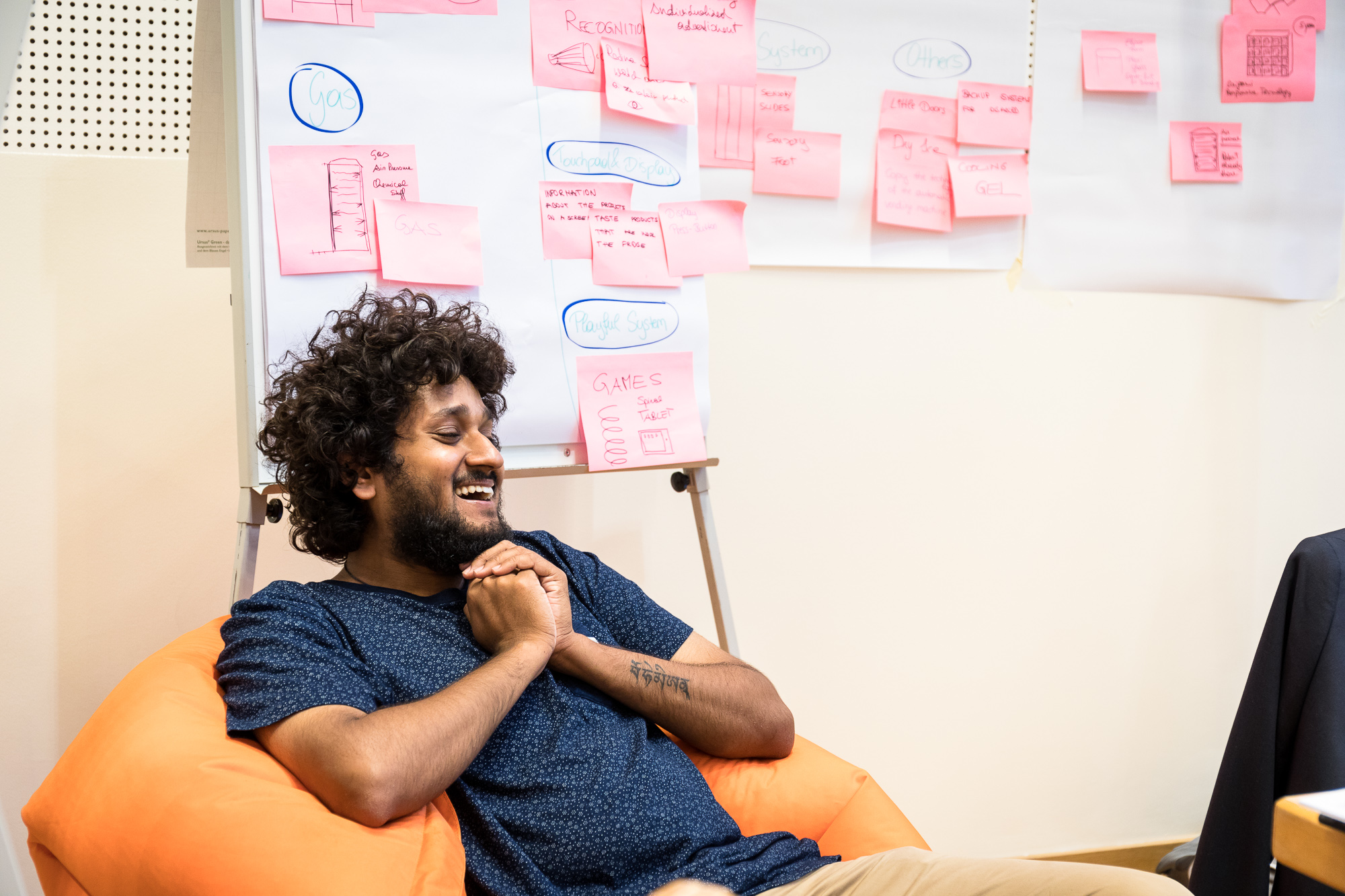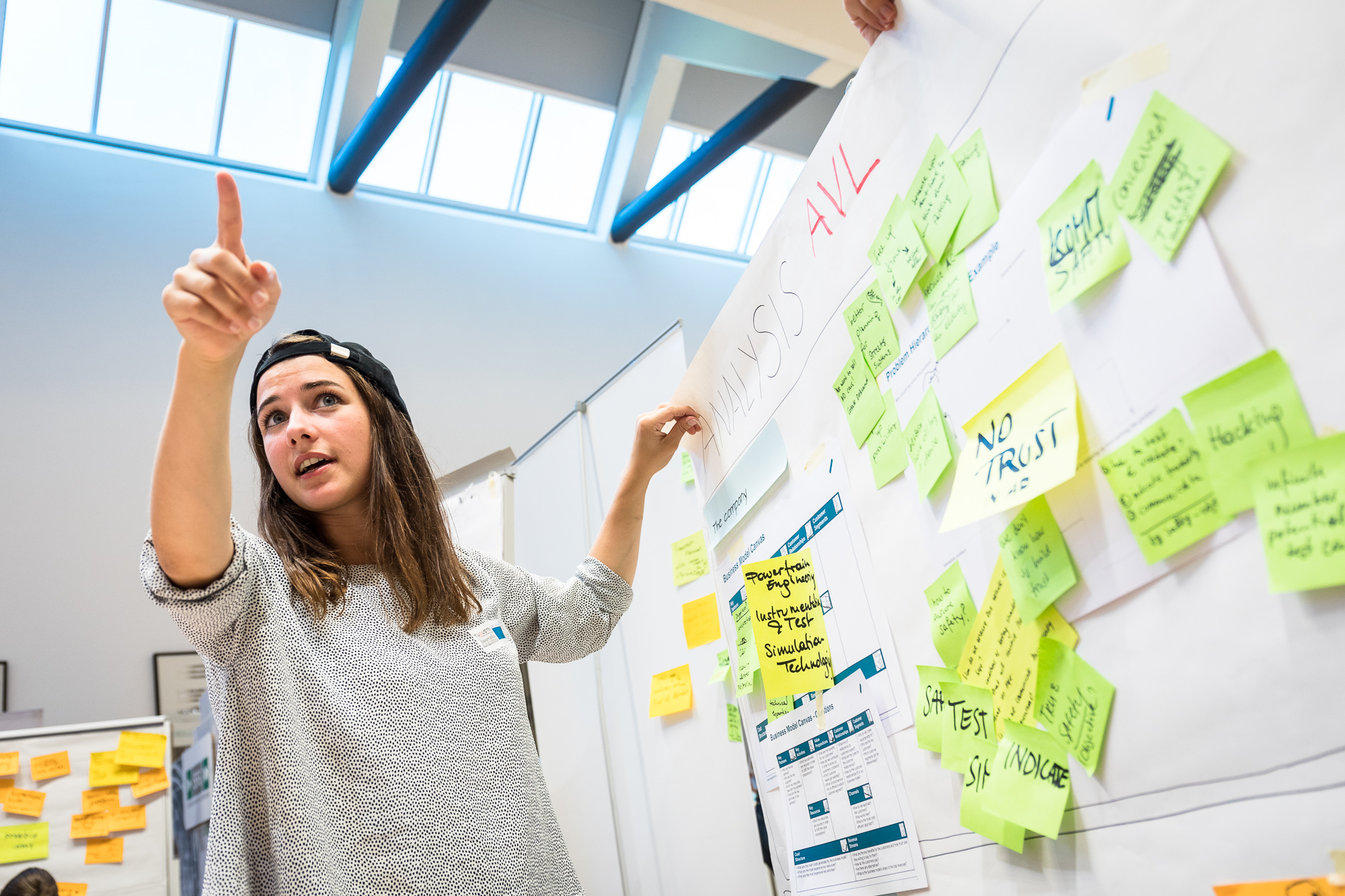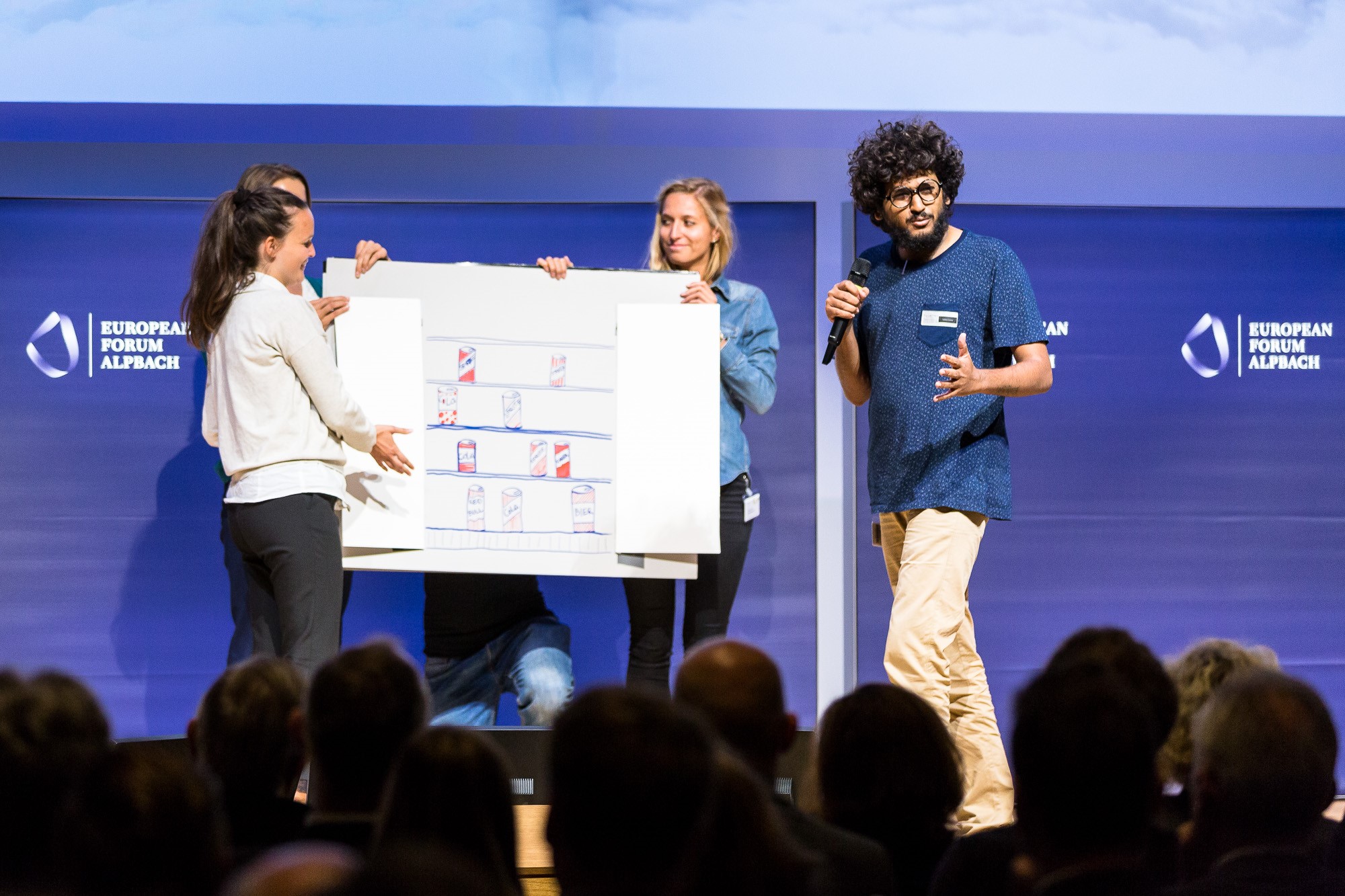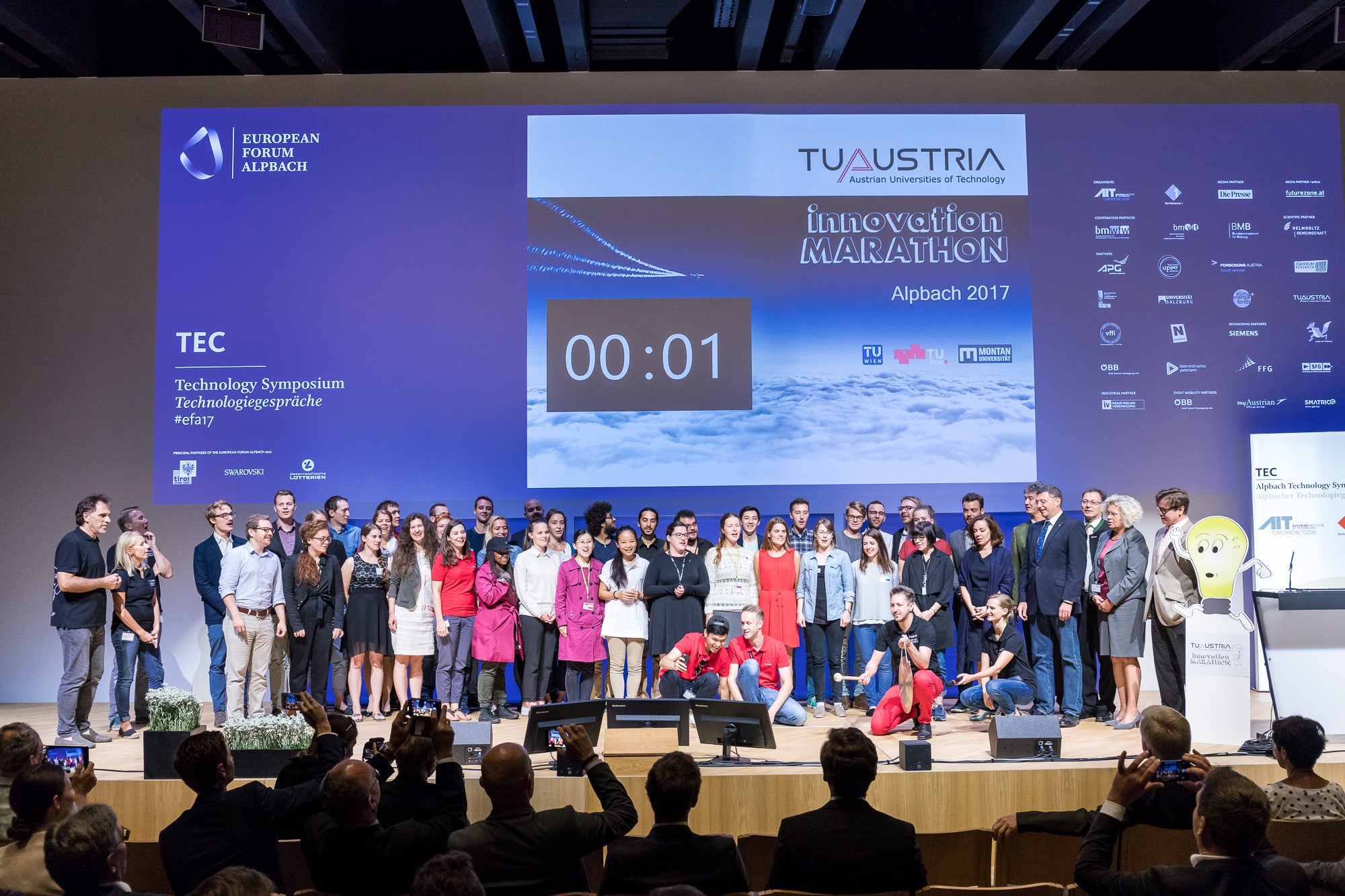24 hours instead of 42 kilometres: Innovation Marathon in Alpbach
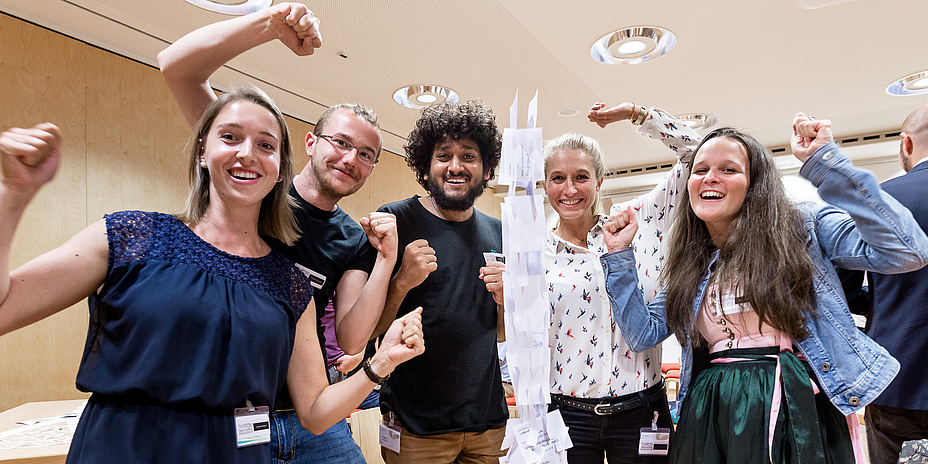
- AVL List GmbH | “Trust in autonomous vehicles with AI”
- Energie Steiermark | „Energy as a Service“
- Constantia Flexibles Group GmbH | “The future of packaging in a digital world”
- Fronius International GmbH | „Future Intralogicstic“
- Liebherr-Hausgeräte Lienz GmbH | „One-hand-shopping merchandising cooler”
- Logicdata GmbH | “The future workplace – a digital theatre for analog experiences”
- Magna Steyr AG | „Game-changing vehicle vision for the urban environment 2025+“
- voestalpine | „Failure detection in steel casting process“
1.000 ideas - one solution
Over 1,000 ideas were conceived, eight of them were elaborated in detail, and exactly 24 hours after the starting shot were clearly presented to the corporate partners and guests today, Friday. The task setters from industry were visibly impressed and took up the fresh input. The somewhat exhausted students are proud of their own innovative power and made valuable contacts.Harald Kainz, Rector of TU Graz and incumbent president of TU Austria, was extremely impressed, as were Sabine Seidler, Rector of TU Wien, and Wilfried Eichlseder, Rector of the University of Leoben: “The TU Austria Innovation Marathon demands so much: specialist competence, teamwork, enthusiasm, creativity, pioneering spirit and endurance. It’s amazing what the 40 students developed in only 24 hours. It’s no wonder that this format is so popular both with the students themselves and our corporate partners.”Mario Fallast, head of the organisational team of the TU Austria Innovation Marathon, emphasised: “Such innovative results in such a short time can only come from multidisciplinary teams who can look at the task from a whole range of angles. Students have to appreciate each other, be able to stand up to criticism and show initiative.” Students from some dozen countries had to apply beforehand to land themselves places at the Innovation Marathon. They were divided into teams depending on their fields of study, areas of personal interest and social competences.
The concept of the Innovation Marathon
An Innovation Marathon consists of three phases. At the starting gong, the teams find out what task they’ll be working on and the roughly ten-hour analysis phase begins. Special value is placed on this. Often, what at first appears to be a technical problem turns out on closer inspection to be a communication or design problem. At the end of the analysis phase, the teams formulate the tasks anew together with the corporate partners. Then the incubation phase commences. The students leave their work places, divert their attention away from the assignment, and give their unconscious minds an opportunity to process the huge amount of information. Then the solution phase can begin. The teams are deeply immersed in their topics, generate as many ideas as possible, and now work in a focused way on concrete solutions. “From the point of view of companies, today‘s employees should contribute as much creativity as possible. But only few of them have experienced a professionally led creative process. Experience gained in the Innovation Marathon gives the students trust in their own abilities and the confidence to successfully master future challenges,” says Mario Fallast.The 3rd TU Austria Innovation Marathon took place in the course of the <link https: www.alpbach.org en event technology-symposium _blank int-link-external external link in new>Alpbach Technology Symposium, which was organised by the Austrian Institute of Technology and ORF Radio Ö1.
Kontakt
Dipl.-Ing.
Project Leader TU Austria Innovationsmarathon
TU Graz | Research & Technology House
Phone: +43 664 333 2355
Email: <link>mario.fallast@tugraz.at TU Austria media contact:
Barbara GIGLER
TU Graz | Communications and Marketing
Phone: +43 664 608736006
Email: <link int-link-mail window for sending>barbara.gigler@tugraz.at


